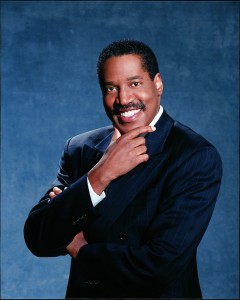How do you make a convincing biopic about Elvis Presley, one of the most important, unique and charismatic performers in the history of American music? But the performer who played Presley in the new movie, “Elvis,” pulled it off spectacularly.
Reportedly, actor Austin Butler worked two years to master singing, sounding and moving like Elvis. It was time well spent. Tom Hanks did his customary superb job with his interpretation of Colonel Tom Parker, the cunning manager, or as many would say, mismanager to whom, it is believed, Presley paid a hefty 50% of his earnings.
Of particular interest, however, is how the film handled Presley’s alleged “cultural appropriation” of black music. Consider, for example, an interview — not in the film — where the great Ray Charles was asked about Presley. Charles said in 1994: “I guess I’m going to lose at least a third of my fans. … To say that Elvis was so outstanding, like they say, he’s ‘the king,’ I don’t think of Elvis like that because I know too many artists that were far greater than Elvis. …
“Here was a white kid that could rock and roll, or rhythm and blues, or whatever you want to call it, and the girls would swoon over him. … Nat Cole got in trouble in Alabama when the women swooned over him. Got put out of town. And black people been going out shaking their behind for centuries. What the hell’s so unusual about that? …
“He was doing our kind of music. He was doing the Willie Mae Thornton ‘Jailhouse Rock.’ That’s black music. So what am I supposed to get so excited about, man? I think all that stuff about saying he’s the king, that’s a piece of bunk.”
Well, OK, but the blind Charles could not see what even Elvis’ detractors credited him with: off-the-chart charisma. A friend of mine, Sandy Martindale, is the wife of the popular longtime game show host Wink Martindale. When she and Elvis were teenagers, they dated. About her first sighting of Elvis, Sandy said, “He looked like he was in 3D.” And the film shows that Elvis deeply appreciated black music, never pretended otherwise, and unreservedly credited black performers with influencing his music, dance and style.
About Presley’s talent, other brilliant and influential black artists strongly disagreed with Charles. For example, Chuck Berry said: “He was the greatest who ever was, is or ever will be.”
Little Richard, who called himself the true “originator” of rock and roll, nevertheless said: “(Elvis) was one of the main doors that came through. Chuck Berry was another door himself. And we’re not saying that Elvis wasn’t a main door. I would never say that. Because Elvis started white people to really sing rock ‘n’ roll.” After Presley died, Little Richard said: “I love him. That’s my buddy, my baby. … Elvis is one of the greatest performers who ever lived in this world.”
B.B. King, in a 2010 interview, defended Elvis against the appropriation charge: “Music is owned by the whole universe. It isn’t exclusive to the black man or the white man or any other color.” In his 1996 autobiography, King wrote: “Elvis didn’t steal any music from anyone. He just had his own interpretation of the music he’d grown up on, same is true for everyone. I think Elvis had integrity.” In a PBS TV interview, King said: “(When Elvis started doing rock ‘n’ roll), he started turning heads, including mine. … He had everything. The looks. The talent. He had everything. To me, he had everything. … He’s handsome. He’s tall. He looks good. He can sing. He can play.”
If you enjoy music, “rock ‘n roll, or rhythm and blues, or whatever you want to call it” as Brother Ray put it, check out this movie. It’s worth the time.
Larry Elder is a best-selling author and nationally syndicated radio talk-show host. To find out more about Larry Elder, or become an “Elderado,” visit www.LarryElder.com. Follow Larry on Twitter @larryelder. To read features by other Creators Syndicate writers and cartoonists, visit the Creators Syndicate webpage at www.creators.com.




